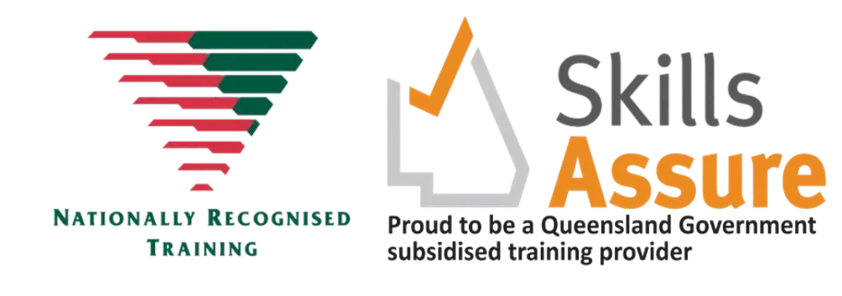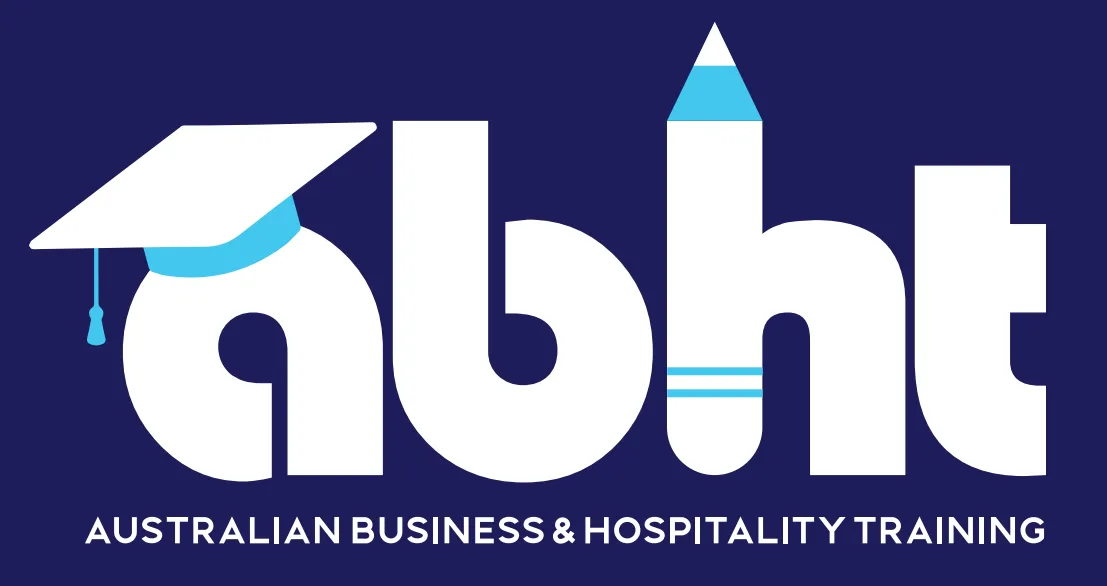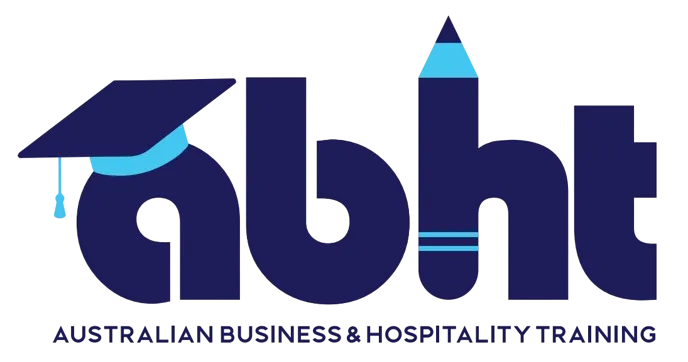SIT30622 - Certificate III Hospitality
Resort
Course Description
Step into the exciting world of luxury resorts with our Certificate III in Hospitality, featuring a Resort Specialisation! This course equips you with the skills to deliver exceptional service in stunning destinations, from greeting guests with a 5-star welcome to ensuring their stay is nothing short of memorable.
You’ll gain expertise in a range of resort duties, including housekeeping tasks like maintaining spotless rooms, making beds with precision, and ensuring every detail meets high standards. On top of that, you'll learn the ins and outs of room service and guest assistance. Ideal for those who want to combine hospitality with a touch of paradise, this course prepares you for a rewarding career in top-tier resorts!
What will you study?
In a Certificate III in Hospitality focusing on resort and motel operations, you'll complete 15 units covering guest services, front office operations, and housekeeping, preparing you for dynamic roles in resort and motel environments.

Course Enrolment:
Anytime

Entry Requirements:
Nil

Course Duration:
12mths

Location:
ABHT are approved to deliver this course nationally via our online platform and can deliver this training face to face in the workplace throughout Metro & SE QLD.

Study Options:
Training can be delivered face to face in the workplace or in a traditional classroom environment. Students can also study within their own schedule using our online platform or combination of face-to-face and online training.

Study Pathways:
Certificate IV Hospitality
Certificate IV Travel and Tourism
Diploma of Hospitality Management
Diploma of Travel and Tourism Management
Certificate III Hospitality (Resort) Training Plan
Hospitality Industry Knowledge & Skills
SITHIND006 Source and use information on the hospitality industry
This unit describes the performance outcomes, skills and knowledge required to source and use current and emerging information on the hospitality industry. This includes industry structure, technology, laws and ethical issues specifically relevant to the hospitality industry. Hospitality personnel integrate this essential knowledge on a daily basis to work effectively in the industry.The unit applies to all hospitality sectors and people working at different levels. Managers will use more formal research to attain specialised and comprehensive knowledge to support product planning, marketing and strategic management activities. This is covered in other units of competency. This unit is not about having in-depth knowledge but focuses on the ability to source and interpret information relevant to day-to-day activities in order to maximise work performance. The skills in this unit must be applied in accordance with Commonwealth and State/Territory legislation, Australian/New Zealand standards and industry codes of practice.
SITHIND008 Work effectively in hospitality service
This unit describes the performance outcomes, skills and knowledge required to work effectively in a hospitality environment and provide service to customers during service periods. It requires the ability to integrate a range of individual technical skills while dealing with numerous sales, service or operational tasks simultaneously to meet the needs of multiple and diverse customers. A service period incorporates preparation, service and end of service tasks. The unit applies individuals working in a range of different departments such as accommodation services, food and beverage, gaming operations and housekeeping, in various hospitality industry settings, including bars, hotels, cafes, restaurants, clubs, pubs and motels. It applies to those frontline service personnel who deal directly with customers on a daily basis and who operate with some level of independence and under limited supervision. The skills in this unit must be applied in accordance with Commonwealth and State/Territory legislation, Australian/New Zealand standards and industry codes of practice.
SITXFSA005 Use hygienic practices for food safety
This unit describes the performance outcomes, skills and knowledge required to use personal hygiene practices to prevent contamination of food that might cause food-borne illnesses. It requires the ability to follow predetermined organisational procedures and to identify and control food hazards. The unit applies to all organisations with permanent or temporary kitchen premises or smaller food preparation or bar areas. This includes restaurants, cafes, clubs, hotels, and bars; tour operators; attractions; function, event, exhibition and conference catering; educational institutions; aged care facilities; correctional centres; hospitals; defence forces; cafeterias, kiosks, canteens and fast food outlets; residential catering; in-flight and other transport catering. It applies to food handlers who directly handle food or food contact surfaces such as cutlery, plates and bowls during the course of their daily work activities. This includes cooks, chefs, caterers, kitchen stewards, kitchen hands, bar, and food and beverage attendants, and sometimes room attendants and front office staff. Food handlers must comply with the requirements contained within the Australia New Zealand Food Standards Code. In some States and Territories businesses are required to designate a food safety supervisor who is required to be certified as competent in this unit through a registered training organisation. Food safety legislative and knowledge requirements may differ across borders. Those developing training to support this unit must consult the relevant state or territory food safety authority to determine any accreditation arrangements for courses, trainers and assessors.
People & Culture
SITXHRM007 Coach others in job skills
and demonstrate specific skills, knowledge and procedures and monitor the progress of colleagues until they are able to operate independently of the coach. The unit applies to experienced operational personnel and to supervisors and managers who informally train other people in new workplace skills and procedures. It applies to all tourism, travel, hospitality and event sectors. The skills in this unit must be applied in accordance with Commonwealth and State/Territory legislation, Australian/New Zealand standards and industry codes of practice.
SITXCOM007 Show social and cultural sensitivity
This unit describes the performance outcomes, skills and knowledge required to be socially aware when serving customers and working with colleagues. It requires the ability to communicate with people from a range of social and cultural groups with respect and sensitivity, and to address cross-cultural misunderstandings should they arise. The unit applies to all tourism, travel, hospitality and event sectors. All personnel at all levels use this skill in the workplace during the course of their daily activities. The skills in this unit must be applied in accordance with Commonwealth and State/Territory legislation, Australian/New Zealand standards and industry codes of practice.
Customer Service
SITXCCS014 Provide service to customers
This unit describes the performance outcomes, skills and knowledge required to communicate effectively with and provide quality service to both internal and external customers. It requires the ability to establish rapport with customers, determine and address customer needs and expectations, and respond to complaints. The unit applies to those frontline service personnel who deal directly with customers on a daily basis and who operate with some level of independence and under limited supervision. This includes individuals working in a range of tourism, travel, hospitality and events contexts. The skills in this unit must be applied in accordance with Commonwealth and State/Territory legislation, Australian/New Zealand standards and industry codes of practice.
SIRXCEG008 Manage disrespectful, aggressive or abusive customers
This unit describes the performance outcomes, skills and knowledge required to appropriately and safely manage customers who are disrespectful, aggressive or abusive. It applies to individuals working in customer service roles in a diverse range of industry sectors and business contexts. They may operate independently or under supervision and guidance from others, and within established organisational policies and procedures. It predominantly applies to retail industry work environments with high levels of customer contact.
Guest Services
SITHACS016 Provide accommodation reception services
This unit describes the performance outcomes, skills and knowledge required to use personal hygiene practices to prevent contamination of food that might cause food-borne illnesses. It requires the ability to follow predetermined organisational procedures and to identify and control food hazards. The unit applies to all organisations with permanent or temporary kitchen premises or smaller food preparation or bar areas. This includes restaurants, cafes, clubs, hotels, and bars; tour operators; attractions; function, event, exhibition and conference catering; educational institutions; aged care facilities; correctional centres; hospitals; defence forces; cafeterias, kiosks, canteens and fast food outlets; residential catering; in-flight and other transport catering. It applies to food handlers who directly handle food or food contact surfaces such as cutlery, plates and bowls during the course of their daily work activities. This includes cooks, chefs, caterers, kitchen stewards, kitchen hands, bar, and food and beverage attendants, and sometimes room attendants and front office staff. Food handlers must comply with the requirements contained within the Australia New Zealand Food Standards Code. In some States and Territories businesses are required to designate a food safety supervisor who is required to be certified as competent in this unit through a registered training organisation. Food safety legislative and knowledge requirements may differ across borders. Those developing training to support this unit must consult the relevant state or territory food safety authority to determine any accreditation arrangements for courses, trainers and assessors.
SITHACS010 Provide housekeeping services to guests
This unit describes the performance outcomes, skills and knowledge required to use personal hygiene practices to prevent contamination of food that might cause food-borne illnesses. It requires the ability to follow predetermined organisational procedures and to identify and control food hazards.The unit applies to all organisations with permanent or temporary kitchen premises or smaller food preparation or bar areas. This includes restaurants, cafes, clubs, hotels, and bars; tour operators; attractions; function, event, exhibition and conference catering; educational institutions; aged care facilities; correctional centres; hospitals; defence forces; cafeterias, kiosks, canteens and fast food outlets; residential catering; in-flight and other transport catering. It applies to food handlers who directly handle food or food contact surfaces such as cutlery, plates and bowls during the course of their daily work activities. This includes cooks, chefs, caterers, kitchen stewards, kitchen hands, bar, and food and beverage attendants, and sometimes room attendants and front office staff. Food handlers must comply with the requirements contained within the Australia New Zealand Food Standards Code. In some States and Territories businesses are required to designate a food safety supervisor who is required to be certified as competent in this unit through a registered training organisation. Food safety legislative and knowledge requirements may differ across borders. Those developing training to support this unit must consult the relevant state or territory food safety authority to determine any accreditation arrangements for courses, trainers and assessors.
SITHACS013 Provide porter services
This unit describes the performance outcomes, skills and knowledge required to use personal hygiene practices to prevent contamination of food that might cause food-borne illnesses. It requires the ability to follow predetermined organisational procedures and to identify and control food hazards.The unit applies to all organisations with permanent or temporary kitchen premises or smaller food preparation or bar areas. This includes restaurants, cafes, clubs, hotels, and bars; tour operators; attractions; function, event, exhibition and conference catering; educational institutions; aged care facilities; correctional centres; hospitals; defence forces; cafeterias, kiosks, canteens and fast food outlets; residential catering; in-flight and other transport catering. It applies to food handlers who directly handle food or food contact surfaces such as cutlery, plates and bowls during the course of their daily work activities. This includes cooks, chefs, caterers, kitchen stewards, kitchen hands, bar, and food and beverage attendants, and sometimes room attendants and front office staff. Food handlers must comply with the requirements contained within the Australia New Zealand Food Standards Code. In some States and Territories businesses are required to designate a food safety supervisor who is required to be certified as competent in this unit through a registered training organisation. Food safety legislative and knowledge requirements may differ across borders. Those developing training to support this unit must consult the relevant state or territory food safety authority to determine any accreditation arrangements for courses, trainers and assessors.
CPPCLO3100 Maintain cleaning storage areas
This unit describes the performance outcomes, skills and knowledge required to use personal hygiene practices to prevent contamination of food that might cause food-borne illnesses. It requires the ability to follow predetermined organisational procedures and to identify and control food hazards.The unit applies to all organisations with permanent or temporary kitchen premises or smaller food preparation or bar areas. This includes restaurants, cafes, clubs, hotels, and bars; tour operators; attractions; function, event, exhibition and conference catering; educational institutions; aged care facilities; correctional centres; hospitals; defence forces; cafeterias, kiosks, canteens and fast food outlets; residential catering; in-flight and other transport catering. It applies to food handlers who directly handle food or food contact surfaces such as cutlery, plates and bowls during the course of their daily work activities. This includes cooks, chefs, caterers, kitchen stewards, kitchen hands, bar, and food and beverage attendants, and sometimes room attendants and front office staff. Food handlers must comply with the requirements contained within the Australia New Zealand Food Standards Code. In some States and Territories businesses are required to designate a food safety supervisor who is required to be certified as competent in this unit through a registered training organisation. Food safety legislative and knowledge requirements may differ across borders. Those developing training to support this unit must consult the relevant state or territory food safety authority to determine any accreditation arrangements for courses, trainers and assessors.
CPPCLO3111 Clean rooms, furniture and fittings
This unit describes the performance outcomes, skills and knowledge required to use personal hygiene practices to prevent contamination of food that might cause food-borne illnesses. It requires the ability to follow predetermined organisational procedures and to identify and control food hazards.The unit applies to all organisations with permanent or temporary kitchen premises or smaller food preparation or bar areas. This includes restaurants, cafes, clubs, hotels, and bars; tour operators; attractions; function, event, exhibition and conference catering; educational institutions; aged care facilities; correctional centres; hospitals; defence forces; cafeterias, kiosks, canteens and fast food outlets; residential catering; in-flight and other transport catering. It applies to food handlers who directly handle food or food contact surfaces such as cutlery, plates and bowls during the course of their daily work activities. This includes cooks, chefs, caterers, kitchen stewards, kitchen hands, bar, and food and beverage attendants, and sometimes room attendants and front office staff. Food handlers must comply with the requirements contained within the Australia New Zealand Food Standards Code. In some States and Territories businesses are required to designate a food safety supervisor who is required to be certified as competent in this unit through a registered training organisation. Food safety legislative and knowledge requirements may differ across borders. Those developing training to support this unit must consult the relevant state or territory food safety authority to determine any accreditation arrangements for courses, trainers and assessors.
BSBSUS211 Participate in sustainable work practices
This unit educates individuals on how to engage in environmentally friendly practices within their workplace. Participants learn how to identify and implement environmentally friendly measures, reduce waste, and minimise the organisation's ecological footprint. Students learn to implement sustainable strategies and contribute to a more eco-conscious working environment.
SITHACS009 Clean premises and equiptment
This unit describes the performance outcomes, skills and knowledge required to carry out general cleaning duties. It requires the ability to set up cleaning equipment and to safely clean premises and equipment using resources efficiently to reduce negative environmental impacts.The unit applies to people responsible for general cleaning duties in any industry context. They work under supervision and usually as part of a team.
Work Health & Safety
SITXWHS005 Participate in safe work practices
This unit describes the performance outcomes, skills and knowledge required to incorporate safe work practices into own workplace activities. It requires the ability to follow predetermined health, safety and security procedures and to participate in organisational work health and safety (WHS) management practices. The unit applies to all tourism, travel, hospitality and event sectors and to any small, medium or large organisation. All personnel at all levels use this skill in the workplace during the course of their daily activities. The unit incorporates the requirement for all employees under state and territory WHS legislation, to participate in the management of their own health and safety, that of their colleagues and anyone else in the workplace. They must cooperate with their employer and follow practices to ensure safety at work. The skills in this unit must be applied in accordance with Commonwealth and State/Territory legislation, Australian/New Zealand standards and industry codes of practice.


Course Fees:
There are four available enrolment options to choose from for this course:


Course Fees:
There are five available enrolment options to choose from for this course:
Career Start:
Career Start provides individuals with the skills and support to start their career. The program provides training to help
individuals find a job and supports those already employed to move into more skilled roles or full-time employment, including after completing an apprenticeship or traineeship.
Career Start offers either a general training pathway or employment-based apprenticeship or traineeship pathway
Career Start - Apprenticeship/Traineeship:
For apprenticeships and traineeships, an individual must be employed as an apprentice or trainee. This pathway is part of the Australian Apprenticeships system and requires all parties to sign an Apprenticeship and Traineeship Training Contract (the Contract) as defined by the Further Education and Training Act 2014 (the Act).
Please Note: The funding provided by Queensland Government doesn't cover the full cost of training.
ABHT is required to levy a Student Contribution Fee:
Non-concessional $1.60 per nominal hour
Concessional $1.12 per nominal hour
Total student contribution fees - Certificate III in Hospitality
Non-concessional: $433.60
Concessional: $303.52
Career Start - General Training:
Qualifications and introductory skill sets delivered through a general training pathway are available for direct enrolment and do not require the student to enter into a training contract (apprenticeship/traineeship) with an employer.
Please Note: The funding provided by Queensland Government doesn't cover the full cost of training.
ABHT are required to charge co-contribution fees for this course, fees are charged and collected at the unit of competency rate.
• Non-Concessional Fees: $1 per unit
• Concessional Fees: $0.70 per unit
Total co-contribution fees for the Certificate III in Hospitality
Non-Concessional: $15.00
Concessional: $10.50
School-Based Traineeship:
School-Based Traineeships are fee free
Fee for Service:
Certificate III Hospitality Resort - $3450.00
Payment Structure for Courses over $1500.00
We make paying for your course simple and manageable.
Courses under $1,500: Pay upfront and in full at enrolment.
Courses over $1,500 A simple payment plan can arranged which will include a $1500 deposit on enrolment.
We also offer payment plans via Ezidebit direct debit, making it even easier to spread the cost of your course.
📌 Ezidebit terms, conditions, and fees apply. Full details will be provided during the enrolment process.
SIT30622 - Certificate III Hospitality
Resort
Course Description
Step into the exciting world of luxury resorts with our Certificate III in Hospitality, featuring a Resort Specialisation! This course equips you with the skills to deliver exceptional service in stunning destinations, from greeting guests with a 5-star welcome to ensuring their stay is nothing short of memorable.
You’ll gain expertise in a range of resort duties, including housekeeping tasks like maintaining spotless rooms, making beds with precision, and ensuring every detail meets high standards. On top of that, you'll learn the ins and outs of room service and guest assistance. Ideal for those who want to combine hospitality with a touch of paradise, this course prepares you for a rewarding career in top-tier resorts!
What will you study?
In a Certificate III in Hospitality focusing on resort and motel operations, you'll complete 15 units covering guest services, front office operations, and housekeeping, preparing you for dynamic roles in resort and motel environments.

Course Enrolment:
Anytime

Entry Requirements:
Nil

Course Duration:
12mths

Location:
ABHT are approved to deliver this course nationally via our online platform and can deliver this training face to face in the workplace throughout Metro & SE QLD.

Study Options:
Training can be delivered face to face in the workplace or in a traditional classroom environment. Students can also study within their own schedule using our online platform or combination of face-to-face and online training.

Study Pathways:
Certificate IV Hospitality
Certificate IV Travel and Tourism
Diploma of Hospitality Management
Diploma of Travel and Tourism Management
Certificate III Hospitality (Resort) Training Plan
Hospitality Industry Knowledge & Skills
SITHIND006 Source and use information on the hospitality industry
This unit describes the performance outcomes, skills and knowledge required to source and use current and emerging information on the hospitality industry. This includes industry structure, technology, laws and ethical issues specifically relevant to the hospitality industry. Hospitality personnel integrate this essential knowledge on a daily basis to work effectively in the industry.The unit applies to all hospitality sectors and people working at different levels. Managers will use more formal research to attain specialised and comprehensive knowledge to support product planning, marketing and strategic management activities. This is covered in other units of competency. This unit is not about having in-depth knowledge but focuses on the ability to source and interpret information relevant to day-to-day activities in order to maximise work performance. The skills in this unit must be applied in accordance with Commonwealth and State/Territory legislation, Australian/New Zealand standards and industry codes of practice.
SITHIND008 Work effectively in hospitality service
This unit describes the performance outcomes, skills and knowledge required to work effectively in a hospitality environment and provide service to customers during service periods. It requires the ability to integrate a range of individual technical skills while dealing with numerous sales, service or operational tasks simultaneously to meet the needs of multiple and diverse customers. A service period incorporates preparation, service and end of service tasks. The unit applies individuals working in a range of different departments such as accommodation services, food and beverage, gaming operations and housekeeping, in various hospitality industry settings, including bars, hotels, cafes, restaurants, clubs, pubs and motels. It applies to those frontline service personnel who deal directly with customers on a daily basis and who operate with some level of independence and under limited supervision. The skills in this unit must be applied in accordance with Commonwealth and State/Territory legislation, Australian/New Zealand standards and industry codes of practice.
SITXFSA005 Use hygienic practices for food safety
This unit describes the performance outcomes, skills and knowledge required to use personal hygiene practices to prevent contamination of food that might cause food-borne illnesses. It requires the ability to follow predetermined organisational procedures and to identify and control food hazards. The unit applies to all organisations with permanent or temporary kitchen premises or smaller food preparation or bar areas. This includes restaurants, cafes, clubs, hotels, and bars; tour operators; attractions; function, event, exhibition and conference catering; educational institutions; aged care facilities; correctional centres; hospitals; defence forces; cafeterias, kiosks, canteens and fast food outlets; residential catering; in-flight and other transport catering. It applies to food handlers who directly handle food or food contact surfaces such as cutlery, plates and bowls during the course of their daily work activities. This includes cooks, chefs, caterers, kitchen stewards, kitchen hands, bar, and food and beverage attendants, and sometimes room attendants and front office staff. Food handlers must comply with the requirements contained within the Australia New Zealand Food Standards Code. In some States and Territories businesses are required to designate a food safety supervisor who is required to be certified as competent in this unit through a registered training organisation. Food safety legislative and knowledge requirements may differ across borders. Those developing training to support this unit must consult the relevant state or territory food safety authority to determine any accreditation arrangements for courses, trainers and assessors.
People & Culture
SITXHRM007 Coach others in job skills
and demonstrate specific skills, knowledge and procedures and monitor the progress of colleagues until they are able to operate independently of the coach. The unit applies to experienced operational personnel and to supervisors and managers who informally train other people in new workplace skills and procedures. It applies to all tourism, travel, hospitality and event sectors. The skills in this unit must be applied in accordance with Commonwealth and State/Territory legislation, Australian/New Zealand standards and industry codes of practice.
SITXCOM007 Show social and cultural sensitivity
This unit describes the performance outcomes, skills and knowledge required to be socially aware when serving customers and working with colleagues. It requires the ability to communicate with people from a range of social and cultural groups with respect and sensitivity, and to address cross-cultural misunderstandings should they arise. The unit applies to all tourism, travel, hospitality and event sectors. All personnel at all levels use this skill in the workplace during the course of their daily activities. The skills in this unit must be applied in accordance with Commonwealth and State/Territory legislation, Australian/New Zealand standards and industry codes of practice.
Customer Service
SITXCCS014 Provide service to customers
This unit describes the performance outcomes, skills and knowledge required to communicate effectively with and provide quality service to both internal and external customers. It requires the ability to establish rapport with customers, determine and address customer needs and expectations, and respond to complaints. The unit applies to those frontline service personnel who deal directly with customers on a daily basis and who operate with some level of independence and under limited supervision. This includes individuals working in a range of tourism, travel, hospitality and events contexts. The skills in this unit must be applied in accordance with Commonwealth and State/Territory legislation, Australian/New Zealand standards and industry codes of practice.
SIRXCEG008 Manage disrespectful, aggressive or abusive customers
This unit describes the performance outcomes, skills and knowledge required to appropriately and safely manage customers who are disrespectful, aggressive or abusive. It applies to individuals working in customer service roles in a diverse range of industry sectors and business contexts. They may operate independently or under supervision and guidance from others, and within established organisational policies and procedures. It predominantly applies to retail industry work environments with high levels of customer contact.
Guest Services
SITHACS016 Provide accommodation reception services
This unit describes the performance outcomes, skills and knowledge required to use personal hygiene practices to prevent contamination of food that might cause food-borne illnesses. It requires the ability to follow predetermined organisational procedures and to identify and control food hazards. The unit applies to all organisations with permanent or temporary kitchen premises or smaller food preparation or bar areas. This includes restaurants, cafes, clubs, hotels, and bars; tour operators; attractions; function, event, exhibition and conference catering; educational institutions; aged care facilities; correctional centres; hospitals; defence forces; cafeterias, kiosks, canteens and fast food outlets; residential catering; in-flight and other transport catering. It applies to food handlers who directly handle food or food contact surfaces such as cutlery, plates and bowls during the course of their daily work activities. This includes cooks, chefs, caterers, kitchen stewards, kitchen hands, bar, and food and beverage attendants, and sometimes room attendants and front office staff. Food handlers must comply with the requirements contained within the Australia New Zealand Food Standards Code. In some States and Territories businesses are required to designate a food safety supervisor who is required to be certified as competent in this unit through a registered training organisation. Food safety legislative and knowledge requirements may differ across borders. Those developing training to support this unit must consult the relevant state or territory food safety authority to determine any accreditation arrangements for courses, trainers and assessors.
SITHACS010 Provide housekeeping services to guests
This unit describes the performance outcomes, skills and knowledge required to use personal hygiene practices to prevent contamination of food that might cause food-borne illnesses. It requires the ability to follow predetermined organisational procedures and to identify and control food hazards.The unit applies to all organisations with permanent or temporary kitchen premises or smaller food preparation or bar areas. This includes restaurants, cafes, clubs, hotels, and bars; tour operators; attractions; function, event, exhibition and conference catering; educational institutions; aged care facilities; correctional centres; hospitals; defence forces; cafeterias, kiosks, canteens and fast food outlets; residential catering; in-flight and other transport catering. It applies to food handlers who directly handle food or food contact surfaces such as cutlery, plates and bowls during the course of their daily work activities. This includes cooks, chefs, caterers, kitchen stewards, kitchen hands, bar, and food and beverage attendants, and sometimes room attendants and front office staff. Food handlers must comply with the requirements contained within the Australia New Zealand Food Standards Code. In some States and Territories businesses are required to designate a food safety supervisor who is required to be certified as competent in this unit through a registered training organisation. Food safety legislative and knowledge requirements may differ across borders. Those developing training to support this unit must consult the relevant state or territory food safety authority to determine any accreditation arrangements for courses, trainers and assessors.
SITHACS013 Provide porter services
This unit describes the performance outcomes, skills and knowledge required to use personal hygiene practices to prevent contamination of food that might cause food-borne illnesses. It requires the ability to follow predetermined organisational procedures and to identify and control food hazards.The unit applies to all organisations with permanent or temporary kitchen premises or smaller food preparation or bar areas. This includes restaurants, cafes, clubs, hotels, and bars; tour operators; attractions; function, event, exhibition and conference catering; educational institutions; aged care facilities; correctional centres; hospitals; defence forces; cafeterias, kiosks, canteens and fast food outlets; residential catering; in-flight and other transport catering. It applies to food handlers who directly handle food or food contact surfaces such as cutlery, plates and bowls during the course of their daily work activities. This includes cooks, chefs, caterers, kitchen stewards, kitchen hands, bar, and food and beverage attendants, and sometimes room attendants and front office staff. Food handlers must comply with the requirements contained within the Australia New Zealand Food Standards Code. In some States and Territories businesses are required to designate a food safety supervisor who is required to be certified as competent in this unit through a registered training organisation. Food safety legislative and knowledge requirements may differ across borders. Those developing training to support this unit must consult the relevant state or territory food safety authority to determine any accreditation arrangements for courses, trainers and assessors.
CPPCLO3100 Maintain cleaning storage areas
This unit describes the performance outcomes, skills and knowledge required to use personal hygiene practices to prevent contamination of food that might cause food-borne illnesses. It requires the ability to follow predetermined organisational procedures and to identify and control food hazards.The unit applies to all organisations with permanent or temporary kitchen premises or smaller food preparation or bar areas. This includes restaurants, cafes, clubs, hotels, and bars; tour operators; attractions; function, event, exhibition and conference catering; educational institutions; aged care facilities; correctional centres; hospitals; defence forces; cafeterias, kiosks, canteens and fast food outlets; residential catering; in-flight and other transport catering. It applies to food handlers who directly handle food or food contact surfaces such as cutlery, plates and bowls during the course of their daily work activities. This includes cooks, chefs, caterers, kitchen stewards, kitchen hands, bar, and food and beverage attendants, and sometimes room attendants and front office staff. Food handlers must comply with the requirements contained within the Australia New Zealand Food Standards Code. In some States and Territories businesses are required to designate a food safety supervisor who is required to be certified as competent in this unit through a registered training organisation. Food safety legislative and knowledge requirements may differ across borders. Those developing training to support this unit must consult the relevant state or territory food safety authority to determine any accreditation arrangements for courses, trainers and assessors.
CPPCLO3111 Clean rooms, furniture and fittings
This unit describes the performance outcomes, skills and knowledge required to use personal hygiene practices to prevent contamination of food that might cause food-borne illnesses. It requires the ability to follow predetermined organisational procedures and to identify and control food hazards.The unit applies to all organisations with permanent or temporary kitchen premises or smaller food preparation or bar areas. This includes restaurants, cafes, clubs, hotels, and bars; tour operators; attractions; function, event, exhibition and conference catering; educational institutions; aged care facilities; correctional centres; hospitals; defence forces; cafeterias, kiosks, canteens and fast food outlets; residential catering; in-flight and other transport catering. It applies to food handlers who directly handle food or food contact surfaces such as cutlery, plates and bowls during the course of their daily work activities. This includes cooks, chefs, caterers, kitchen stewards, kitchen hands, bar, and food and beverage attendants, and sometimes room attendants and front office staff. Food handlers must comply with the requirements contained within the Australia New Zealand Food Standards Code. In some States and Territories businesses are required to designate a food safety supervisor who is required to be certified as competent in this unit through a registered training organisation. Food safety legislative and knowledge requirements may differ across borders. Those developing training to support this unit must consult the relevant state or territory food safety authority to determine any accreditation arrangements for courses, trainers and assessors.
BSBSUS211 Participate in sustainable work practices
This unit educates individuals on how to engage in environmentally friendly practices within their workplace. Participants learn how to identify and implement environmentally friendly measures, reduce waste, and minimise the organisation's ecological footprint. Students learn to implement sustainable strategies and contribute to a more eco-conscious working environment.
SITHACS009 Clean premises and equiptment
This unit describes the performance outcomes, skills and knowledge required to carry out general cleaning duties. It requires the ability to set up cleaning equipment and to safely clean premises and equipment using resources efficiently to reduce negative environmental impacts.The unit applies to people responsible for general cleaning duties in any industry context. They work under supervision and usually as part of a team.
Work Health & Safety
SITXWHS005 Participate in safe work practices
This unit describes the performance outcomes, skills and knowledge required to incorporate safe work practices into own workplace activities. It requires the ability to follow predetermined health, safety and security procedures and to participate in organisational work health and safety (WHS) management practices. The unit applies to all tourism, travel, hospitality and event sectors and to any small, medium or large organisation. All personnel at all levels use this skill in the workplace during the course of their daily activities. The unit incorporates the requirement for all employees under state and territory WHS legislation, to participate in the management of their own health and safety, that of their colleagues and anyone else in the workplace. They must cooperate with their employer and follow practices to ensure safety at work. The skills in this unit must be applied in accordance with Commonwealth and State/Territory legislation, Australian/New Zealand standards and industry codes of practice.



Course Fees:
There are four available enrolment options to choose from for this course:
Career Start:
Career Start provides individuals with the skills and support to start their career. The program provides training to help
individuals find a job and supports those already employed to move into more skilled roles or full-time employment, including after completing an apprenticeship or traineeship.
Career Start offers either a general training pathway or employment-based apprenticeship or traineeship pathway
Career Start - Apprenticeship/Traineeship:
For apprenticeships and traineeships, an individual must be employed as an apprentice or trainee. This pathway is part of the Australian Apprenticeships system and requires all parties to sign an Apprenticeship and Traineeship Training Contract (the Contract) as defined by the Further Education and Training Act 2014 (the Act).
Please Note: The funding provided by Queensland Government doesn't cover the full cost of training.
ABHT is required to levy a Student Contribution Fee:
Non-concessional $1.60 per nominal hour
Concessional $1.12 per nominal hour
Total student contribution fees - Certificate III in Hospitality
Non-concessional: $433.60
Concessional: $303.52.
Career Start - General Training:
Qualifications and introductory skill sets delivered through a general training pathway are available for direct enrolment and do not require the student to enter into a training contract (apprenticeship/traineeship) with an employer.
Please Note: The funding provided by Queensland Government doesn't cover the full cost of training.
ABHT are required to charge co-contribution fees for this course, fees are charged and collected at the unit of competency rate.
• Non-Concessional Fees: $1 per unit
• Concessional Fees: $0.70 per unit
School-Based Traineeship:
School-Based Traineeships are fee free
Fee for Service:
Certificate III Hospitality Resort - $3450.00
Payment Structure for Courses over $1500.00
We make paying for your course simple and manageable.
Courses under $1,500: Pay upfront and in full at enrolment.
Courses over $1,500 A simple payment plan can arranged which will include a $1500 deposit on enrolment.
We also offer payment plans via Ezidebit direct debit, making it even easier to spread the cost of your course.
📌 Ezidebit terms, conditions, and fees apply. Full details will be provided during the enrolment process.
Career Pathway
Career Pathway
Students who successfully complete a Certificate III in Hospitality may be able to pursue the following entry-level career outcomes. These roles often serve as a stepping stone for further advancement in hospitality-related fields.
Students who successfully complete a Certificate III in Hospitality may be able to pursue the following entry-level career outcomes. These roles often serve as a stepping stone for further advancement in hospitality-related fields.
Study Pathway
Study Pathway
Take your career to the next levels
Use your Certificate III in Hospitality as a pathway to higher education — graduates are eligible to enrol in these next-level VET qualifications:
Take your career to the next levels
Use your Certificate III in Hospitality as a pathway to higher education — graduates are eligible to enrol in these next-level VET qualifications:
Ready to enrol?
Ready to enrol?
Register your interest
Fill in our expression of interest form here or call (07) 3117 9722
Eligibility Check
We will check your are eligible for Government funded training.
Enrolment Call
We call you to discuss your enrolment, eligibility for funding and training plan.
We will also confirm course costs and arrange payment or a payment plan
Online Enrolment Form
We will send you the link to our online enrolment, where you can upload your ID and submit all the details required.


Get in touch with us
Ready to connect with us?
We’re just a message away and can’t wait to hear from you!
Whether you have questions, need assistance, or just want to stay in touch, reach out and send us a message through our contact form, give us a call, or drop us an email. Our friendly team is here to help and make your experience awesome. So don’t be shy—let’s get the conversation started! 📞💌✨
Send us a message
More
Follow us
Contact Us
(07) 3117 9722
Level 2. 14 Smith Street
Mooloolaba QLD 4557
Monday to Friday
8.30am to 4.30pm

Acknowledgement of Country

In the spirit of reconciliation ABHT acknowledges the Traditional Custodians of Country throughout Australia and their connections to land, sea and community.
We pay our respect to their Elders past and present and extend that respect to all Aboriginal and Torres Strait Islander peoples today.
© Copyright 2026. Australian Business & Hospitality Training. All rights reserved. RTO#31983






